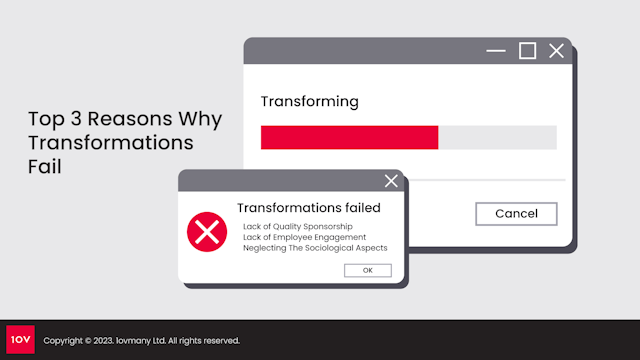What Are The Direct Benefits Of Coaching To The Organisation?
In this article, I'll take the concepts of Individual, Team and Organisational coaching and discuss the benefits to your organisation.
14 June 2021

Definition of Coaching
Before we dive into the benefits of organisational coaching let's begin with a definition of what coaching is.
The International Coaching Federation (ICF) define coaching as partnering with clients in a thought-provoking and creative process that inspires them to maximize their personal and professional potential.
That provides a very nice basis for how a professional coach would approach setting up a coaching relationship.
This is quite common in large organisations where executive coaching - highly specialised niche coaching reserved for top members of an organisation - takes place in a one-to-one coaching process.
Coaching Type Overview
Although leadership coaching is the best known, an individual coaching culture is starting to emerge as an approach to improving work performance, for which I'll expand on later in the article.
Now having said the above, a client is not necessarily an individual. In the last decade, organisations have begun to heavily adopt team-based ways of working, for which group coaching is becoming commonplace.
Of course, senior managers and leadership teams have perhaps benefited first from this coaching practice, but we have seen a team-based coaching approach adopted with roles like Agile Coach and team mentor supporting front line staff.
Organisational coaching is the next level up beyond a team or business unit, and focuses on the wider system of individuals.
Terms such as a team of teams or companies as an ecosystem have emerged of late over the last couple of years and describe a whole organisation interaction.
Specialist professional coaching, provided by a certified organisational coach, is moving the coaching conversation forward, toward a new learning culture focused on employee engagement and employee experience.
In this article, I'll take the concepts introduced above and discuss the benefits you can expect from each.
Individual Coaching
Individual Coaching in an organisation can appear in many different forms. As mentioned in the opening paragraphs, executive coaching is the most well known sub-form of individual coaching, and focuses primarily on leadership development.
An executive coach can help a senior leader improve skills by helping them gain self-awareness, clarify goals, achieve development objectives, and act as a sounding board to keep them on track with these outcomes.
Another form of individual coaching, operating in a similar fashion to executive coaching, would be the career development of a promising VP/Manager.
Senior management may wish for their direct reports to experience the same benefits they've had from coaching, and help those individuals focus on enhancing their career goals and professional development.
This can be achieved through a coaching programme designed to keep them accountable on a regular cadence or to the agreed coaching outcomes.
The Role of HR in Coaching
Additionally, HR professionals can support organisational performance outcomes, personal development, professional development and work performance of employees by sponsoring a coaching programme.
These outcomes are often heavily aligned with an organisations ability to set and meet strategic objectives, as well as going a long way in helping to define and develop long-term organisational culture.
"Everyone needs a coach. It doesn't matter whether you're a basketball player, a tennis player, a gymnast or a bridge player. We all need people who will give us feedback. That's how we improve."
Bill Gates
Team Coaching
There are many articles and studies showing us that the idea of group intelligence, and how it directly impacts workplace performance and corporate culture, is a real tangible challenge within an organisational context.
This is not only the case for those that notice and focus on it, but also for those that do not and suffer the unintended consequences.
Modern progressive tech companies, like Google, have promoted the idea of creating psychological safety in their teams because studies, including their own project Aristotle, have revealed that better performing teams are often the ones who have a higher degree of psychological safety. This is easier said than done with many team dynamics and personal agendas at play.
Google themselves determined it was more about how a team worked together, than who was on the team, suggesting that bringing a team together as a unit is not solely dependent on the team members individually, and that a group of high achieving individuals may not necessarily have the makings of a great team.
Benefits of Team Coaching
Team coaching sessions are designed as an insular container for a conversation, inviting the unspoken into the group's focus with the goal of raising self-awareness, and establishing more trust.
Patrick Lencioni, author of bestselling book "The 5 dysfunctions of a team", notes the absence of trust as being the base layer for all other dysfunctional behaviours in a team.
Lencioni's suggestion is that an absence of trust within a team will subsequently lead to a fear of conflict, lack of commitment, avoidance of accountability and ultimately inattention to results.
One of the key benefits of team coaching to an organisation, whether that be using external coaches, or indeed internal coaches, is identifying and combatting the sources of trust dysfunction within a team and integrating each step into coaching programs to help improve overall organisational performance.
 Lencioni’s 5 Dysfunctions of a Team | Source: Center for Internal Change
Lencioni’s 5 Dysfunctions of a Team | Source: Center for Internal Change
Organisational Coaching
Organisational Coaching focuses on facilitating positive organisational change, often through collective working, decision making and developing a culture to streamline the flow of information.
Although there are overlapping features of leadership coaching and team coaching within the subsets of organisational coaching, the latter prioritises the organisational needs as a whole, and is typically dependent on what's known as a coaching panel.
Unlike that of business coaching, which focuses primarily on improving the economic condition of the organisation, organisational coaching still very much has human dynamic at the heart of its coaching methodology.
Benefits of Organisational Coaching
One of the main benefits of organisational coaching to the business, is helping to define the culture and purpose of that business through its workforce, with a strong focus towards organisational growth and meeting company-wide goals & objectives.
Encouraging cultural development and collective learning across the operational ecosystem within an organisation, can often lead to improved productivity and workplace satisfaction.
This is why a key element of an organisational coach's responsibility becomes addressing the working relationships within the business at an organisational level, in an effort to align goals and outcomes with company objectives.
Our System
Our team are Organisation and Relationship Systems Coaches. This is an innovative and powerful coaching model based on Relationship Systems Intelligence.
A 'relationship system' is any interdependent group of people, sharing a common identity or function. In an organisational context we would refer to this as corporate culture.
This brings us to another key benefit of coaching to the organisation; helping to make your people feel valued and heard.
When leadership displays investment in coaching, be it individual, team or organisational, it is often an indication to employees that leaders are not only concerned about the output of individuals, but also workplace satisfaction and professional development.
Modern leaders need to foster social currency throughout their workforce in a similar manner to that of their customer-base, and one way of achieving this is through investment in its people.
Summary
There is a common thread amongst the different types of coaching, progressive development and increased self-awareness, which will ultimately lead to improvements in organisational impact metrics.
However, although coaching often seems like a luxury reserved for leadership development, it can also work wonders for the wellbeing and engagement of an organisation's workforce.
This is because organisations that demonstrate a willingness to support their people - not just financially but in the interest of wellbeing - are often found to have strengthened the bond of its people, improved employee experience and increased overall productivity.
At 1ovmany, we're fortunate to have been able to play a part in helping organisations develop these aspects, as we strive to achieve a more enlightened organisational landscape.
Why not get in touch with us to learn more about how our coaching services can help the people and teams within your organisation. Or head over to our Medium page for more useful insights. Let's facilitate impactful change together!

About the author
Taner Kapucu
Taner is the Co-Founder and Co-CEO of 1ovmany. He is also the Co-Author of The OKR Method a Strategy & OKR Expert and at times an Executive Business Transformation Coach.






































